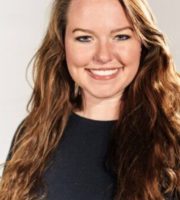In response, university president touts importance of free speech on campus
“I felt extremely uncomfortable and felt like I could not express any opinions during Day of Dialogue just because I was a white female…”
“Whenever I mention politics on a few topics, I get backlash for my view on immigration and the wall considering it’s my own personal opinion. Same with gun control laws…”
“Liberal professors don’t like to hear that they are wrong. They love to talk about how we should fix things and how some group or the other is oppressed by white people (especially straight white males). They don’t want to listen to objective facts which would show that they are incorrect.”
Those are just three of the many responses fielded from DePauw University students by the Foundation for Individual Rights in Education and RealClearEducation as part of its recent nationwide survey of colleges and universities regarding freedom of speech and expression.
Nearly 20,000 students attending 55 different colleges and universities nationwide were asked about various free speech issues on their campuses, and when the results were tallied, DePauw University came in last among the 55 institutions.
The scores were derived by asking students’ various questions about campus openness to different topics, tolerance for discussing controversial views, administrative support for free speech, the ability of students to comfortably self-express, speech codes, and the ideological diversity of the student body.
The Indiana-based DePauw University had the highest percentage of students who said they’ve self-censored at 71 percent and was also the lowest-rated school by conservative students and the fourth lowest by liberal students, according to the results.
“A professor was making a comment on how all Republicans are racist and selfish,” one student reported. “As a Republican, I felt that I could not speak up and defend myself because of the position of power the professor was in.”
FIRE, an organization that helps students and professors caught in free speech battles, has given DePauw a free speech code rating of red. This means that the school has one or more policies that restrict freedom of speech, according to its website.
Sean Stevens, a senior research fellow for polling and analytics at FIRE, told The College Fix if the university wants to improve its rating, it should work harder to make students comfortable expressing their beliefs on campus.
“One thing the university could do is take a clear stand in favor of free speech by revising their red light policies so they do not significantly threaten free speech and make it very clear to the students that they are doing this,” Stevens said.
Stevens said the survey found that small, private schools are often where students feel the most restricted in their political beliefs. DePauw, which is private, also has a student population of nearly 2,000 undergrads, which is akin to a small high school.
“Our recent data suggests that students at smaller, private institutions may experience a more restrictive speech climate,” Stevens said. “In our report we mildly suggested that this may be because larger institutions, which are more likely to be public, may allow students to either hide in the background because of the sheer number of people in a classroom or more easily find like-minded others because there are so many more people on campus.”
The new president of DePauw, Lori White, released in a statement sent to The College Fix that schools should be a safe place for students to express themselves.
“Institutions of higher education, particularly those in the liberal arts tradition, should hold two important values – freedom of speech and expression and diversity and inclusion,” said White, who took the helm of DePauw in July.
The survey results came out in late September.
“As the new president at DePauw University, I am focused on leading with these values and, as an educator who has spent my career in student support, I am striving to ensure that all of our students feel comfortable and supported exercising these values in harmony with one another,” White wrote.
On Nov. 18, the university announced White would be a member of a new national “task force of academic leaders who will identify practices, programs and policies to foster free expression on college campuses.”
When asked about the FIRE ranking specifically, the school did not comment, but instead pointed to the task force.
The group, called the Academic Leaders Task Force on Campus Free Expression, is the brainchild of the Washington D.C.-based Bipartisan Policy Center think tank.
The task force will work to adopt a free expression statement and develop procedures “that ensure that free expression informs and harmonizes with other policies,” according to the news release.
White said in her statement that though there is room for improvement, she plans to take steps to make campus more inclusive for students of all political beliefs.
“DePauw strives to prepare leaders of integrity who listen and converse with others from a place of respect and desire to understand alternative points of view,” White said. “We want to be a university where all students, no matter where they reside on the political spectrum or any other form of identity, believe they can express themselves freely. We are a work in progress and I am confident we are headed in the right direction.”
MORE: Here are the Top 10 best and worst universities for free speech, according to students
IMAGE: Motortion Films / Shutterstock
Like The College Fix on Facebook / Follow us on Twitter






Please join the conversation about our stories on Facebook, Twitter, Instagram, Reddit, MeWe, Rumble, Gab, Minds and Gettr.